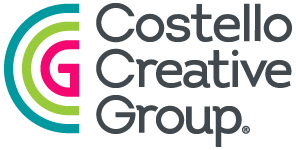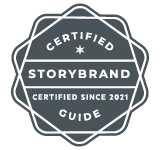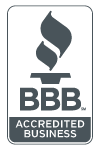
Why Your Manufacturing Website Isn’t Converting Technical Buyers (And How to Fix It)
08.11.2025
|
Melissa Lipovsky
Your manufacturing website gets decent traffic. Trade show attendees visit after meeting your team. Prospects find you through search when they’re researching suppliers. But somehow, those website visitors aren’t turning into qualified leads or meaningful sales conversations.
If this sounds familiar, you’re not alone. Manufacturing companies in the flavors, fragrances, chemical, and ingredients sectors face unique challenges when it comes to website conversion. Unlike consumer-focused businesses, you’re dealing with technical buyers who have specific research patterns, complex decision-making processes, and very different expectations from your digital presence.
The problem isn’t necessarily your products or services – it’s often how your website presents them to the technical decision-makers who control purchasing decisions. Let’s explore why many manufacturing websites fail to convert visitors into leads, and more importantly, how to fix these issues.
Understanding Your Technical Buyer’s Journey
Before diving into specific conversion problems, it’s crucial to understand how technical buyers in manufacturing actually use websites. Unlike consumer purchases, B2B manufacturing decisions involve multiple stakeholders, longer research cycles, and detailed technical evaluation.
A procurement manager researching flavor suppliers doesn’t browse casually. They’re looking for specific technical specifications, regulatory compliance information, production capabilities, and quality certifications. A product developer evaluating fragrance suppliers needs detailed ingredient profiles, stability data, and application guidelines. Formulation chemists require comprehensive technical documentation, compatibility information, and regulatory support details. These buyers don’t convert on emotion or flashy visuals – they convert when they find the technical information they need presented clearly and professionally.
Your website needs to serve this analytical, research-driven approach to purchasing. When it doesn’t, even highly qualified prospects leave without engaging.
Problem #1: Generic Messaging That Doesn’t Speak to Technical Audiences
Many manufacturing websites use generic business language that fails to resonate with technical buyers. Phrases like “innovative solutions” or “industry-leading quality” don’t provide the specific information that product developers and procurement teams need to make decisions.
Why This Hurts Conversion: Technical buyers want concrete information about capabilities, specifications, and results. Vague marketing language makes them question whether you understand their needs or have the technical expertise they require.
How to Fix It: Replace generic messaging with specific, technical language that demonstrates deep industry knowledge. Instead of “innovative fragrance solutions,” try “custom fragrance development for personal care applications with full regulatory support and stability testing.” Instead of “quality ingredients,” specify “food-grade flavor compounds with complete sensory profiles, allergen documentation, and regulatory compliance for global markets.”
Your messaging should immediately signal that you understand the technical challenges your prospects face and have the specific expertise to address them.
Problem #2: Product Information That’s Hard to Find or Incomplete
Technical buyers need detailed product information to evaluate suppliers. If your website makes it difficult to find specifications, safety data, or technical details, prospects will move on to competitors who make this information readily available.
Why This Hurts Conversion: Product developers and R&D teams often have specific requirements they need to verify before they’ll consider a supplier. If they can’t quickly find technical data sheets, regulatory compliance information, or compatibility details, they’ll assume you either don’t have this information or don’t understand its importance.
How to Fix It: Create a logical, searchable product catalog with detailed technical information for each offering. Include specifications, safety data, regulatory compliance details, and application guidelines. Make this information easily accessible from your main navigation and searchable by technical criteria.
For fragrance manufacturers, this might mean filterable databases by olfactory families, volatility profiles, or regulatory approvals. For flavor suppliers, it could include searchable catalogs by taste profiles, application stability, or allergen status. Chemical manufacturers should organize products by molecular properties, purity levels, or industry applications.
Problem #3: Mobile Experience That Fails Technical Users
While consumer websites prioritize mobile experience for browsing and purchasing, manufacturing websites often treat mobile as an afterthought. However, technical buyers frequently use mobile devices during facility tours, trade shows, or when discussing specifications with colleagues.
Why This Hurts Conversion: Sales representatives need to access product information on tablets during client meetings. Formulation chemists might look up technical specifications on their phones while in the lab. Product developers could be reviewing supplier capabilities between meetings. If your mobile experience is poor, you’re losing conversion opportunities in these critical moments.
How to Fix It: Ensure your product catalogs, technical documentation, and contact forms work seamlessly on mobile devices. Test your website on tablets and smartphones in real-world scenarios. Can a sales rep quickly pull up a fragrance profile during a client meeting? Can a chemist easily access safety data from a laboratory setting?
Priority areas for mobile optimization include product search functionality, technical document access, and streamlined contact forms for technical inquiries.
Problem #4: Unclear Value Proposition for Your Specific Market
Manufacturing websites often fail to clearly communicate what makes them different from competitors. In industries like flavors, fragrances, chemicals, and ingredients, differentiation is crucial because buyers have multiple supplier options.
Why This Hurts Conversion: Technical buyers evaluate multiple suppliers simultaneously. If your website doesn’t clearly explain your unique capabilities, specialized expertise, or competitive advantages, prospects can’t determine why they should choose you over alternatives.
How to Fix It: Develop a clear value proposition that speaks directly to your target market’s specific needs. Are you the only flavor supplier in your region with organic certification? Do you offer the fastest turnaround times for custom fragrance development? Can you provide formulation support that competitors don’t offer?
Make these differentiators prominent on your homepage and key service pages. Use specific examples and quantifiable benefits rather than generic claims. For instance, “48-hour fragrance matching with full regulatory documentation” is more compelling than “fast, compliant service.”
Problem #5: Missing Trust Signals for Technical Buyers
Technical buyers need to trust that you can deliver on promises before they’ll engage. Manufacturing websites often lack the specific trust signals that matter to product developers and procurement teams.
Why This Hurts Conversion: Technical buyers are risk-averse. They need evidence that you have the expertise, capabilities, and reliability to support their product development efforts. Without proper trust signals, they’ll choose suppliers with more credible presentations.
How to Fix It: Include trust signals that matter to technical audiences: detailed company certifications, quality standards compliance, analytical capabilities, technical team credentials, and client testimonials that focus on technical performance rather than generic satisfaction.
For fragrance manufacturers, this might include perfumer credentials, analytical testing capabilities, and regulatory expertise. For flavor suppliers, it could mean sensory panel capabilities, application laboratories, and food safety certifications. Chemical manufacturers should highlight analytical equipment, quality control processes, and technical support teams.
Problem #6: Poor Contact Experience for Technical Inquiries
Many manufacturing websites treat all inquiries the same way, using generic contact forms that don’t capture the specific information needed for technical discussions.
Why This Hurts Conversion: Technical buyers have specific questions about capabilities, specifications, and applications. Generic contact forms that ask for basic information don’t facilitate meaningful technical conversations, leading to longer sales cycles and lost opportunities.
How to Fix It: Create specialized contact forms for technical inquiries that capture relevant information upfront. Include fields for specific applications, technical requirements, volume needs, regulatory considerations, and timeline expectations. This helps your technical sales team prepare for more productive initial conversations.
Consider offering multiple contact options: direct phone numbers for technical support, email addresses for R&D teams, and online chat for quick specification questions.
Problem #7: Slow Load Times That Lose Impatient Prospects
Technical buyers are often researching multiple suppliers simultaneously. If your website loads slowly, they’ll move on to competitors rather than wait for your content to appear.
Why This Hurts Conversion: Manufacturing websites often include high-resolution product images, detailed technical documents, and complex catalogs that can slow load times. However, technical buyers expect fast, efficient access to information.
How to Fix It: Optimize your website for speed without sacrificing technical content quality. Compress images, minimize code, and use efficient hosting. Prioritize loading speed for your most important conversion pages: product catalogs, technical documentation, and contact forms.
Test your website speed regularly and monitor how load times affect user behavior and conversion rates.
Creating a Conversion-Focused Manufacturing Website
Fixing these conversion issues requires a strategic approach that understands the unique needs of technical buyers in manufacturing. Your website should serve as a technical resource that helps prospects evaluate your capabilities while making it easy for them to initiate meaningful business conversations.
The most effective manufacturing websites combine technical depth with user-friendly design, creating experiences that serve both the analytical needs of technical buyers and the business goals of your organization.
Ready to Improve Your Website’s Conversion Rate?
If you recognize these conversion challenges on your manufacturing website, you’re not alone. Many companies in the flavors, fragrances, chemical, and ingredients sectors struggle with websites that generate traffic but fail to convert technical buyers into qualified leads.
Contact us today to discuss how we can help optimize your manufacturing website for better conversion. We specialize in creating websites that speak directly to technical buyers while driving real business results for companies in your industry.
Want to learn more about our approach to manufacturing website design and optimization? We’d be happy to walk you through our process and show you how we help companies like yours turn website visitors into qualified prospects.
Your website should be your most effective sales tool for reaching technical buyers. Let’s talk about making that reality for your company.
Share This!
B2B Branding Pro Tips & Insights
Receive B2B creative marketing tips, tools, and resources that create awareness and attract leads driving top line growth directly to your inbox.
"*" indicates required fields











